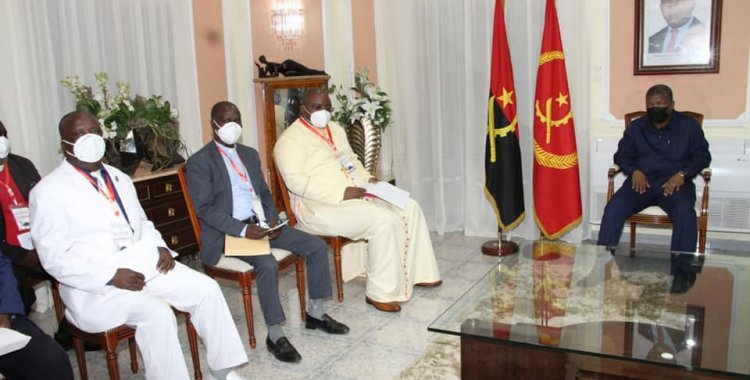After an audience with João Lourenço, who started a three-day visit to that northern province this Thursday, Belmiro Chissengueti said that the meeting was "good" and "very cordial", addressing several issues.
"We encourage the President to continue these good signs of reconciliation that he has given in recent times", he told journalists, referring to the recent meeting of the Chief Executive with the opposition leader, Adalberto da Costa Júnior (UNITA), who " helped to ease tempers and tension across the country"
"It is something that must continue for the sake of peace and national reconciliation," he appealed.
The ecclesiastic also presented the question of the former soldiers of the Forces for the Liberation of the Enclave of Cabinda (FLEC), "a process that was not well completed and that must be monitored precisely because there is a need to ensure that peace comes to all".
"There are promises made and they must be carried out for the sake of peace and reconciliation here in our land of Cabinda", he stressed.
Asked by Lusa about whether there is, in fact, an increase in clashes with separatist movements in the region, as FLEC has announced last week, he said that the military issue was not addressed.
"This military part will be the responsibility of the General Staff or the Armed Forces, which certainly have more appropriate information. The fact remains that the peace process must cover the entire country and we must have serenity to be able to face the issues that are placed", he declared.
The bishop also spoke about the new hospital, "a major work that was inaugurated today", also appealing to the participation of citizens so that the infrastructure can be kept in good condition, and pointed out the degradation of roads that hinders mobility in the province.
He also proposed a new housing model that does not create "a kind of social apartheid", but is inclusive.
On the public debt, he said that it "stifles the local business community" and that it must be resolved so that businessmen find some relief in their activity.
Another important data, "very pronounced in Cabinda", is that of illegal emigration.
"It is true that all countries in the world have emigrants, but they must be legalized so that they can act within the framework of the law," he said.
He also called for more attention to the issue of employability, especially for mothers, who sometimes have to separate from their families, a topic reinforced by the representative of the ecumenical platforms.
Prospero Ncata, spoke about issues related to employment asking for more professional training centers, since many young people do not have access to university.
The subject was also taken up by the youth representative, Amélia Tati, who, in the audience with João Lourenço, identified unemployment among the main problems that affect Cabinda's youth.







